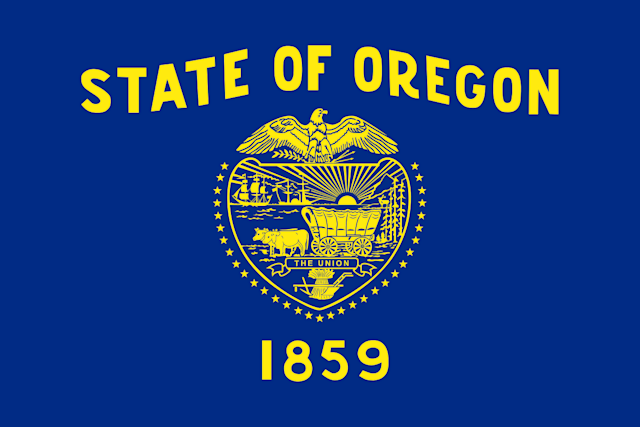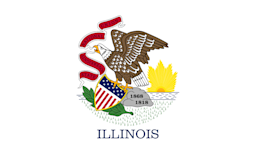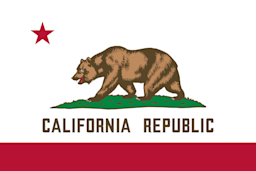

Let us do the work for you! Share your needs with our Concierge team, and they'll book you with our best available top-ranked service providers!
Call us atDrunk driving continues to be a problem on many roads in the country, including Oregon. The National Highway Traffic Safety Administration found that in 2020, 508 people died in the state due to alcohol-related crashes. Thirty-eight percent of these fatalities involved people driving above the legal alcohol limit, while 221 had a blood alcohol content level above 0.01 percent, showing how dangerous drunk driving can be regardless of a person’s degree of intoxication. To prevent further accidents, law enforcement personnel in cities like Bend have heightened their initiatives in apprehending drunk drivers. More than 680 people were arrested for impaired driving in the city in 2022, a figure 35 percent higher than the total arrests in the previous year. Oregon also launched the Impaired Driving Program Assessment, a state-wide initiative focusing on analyzing relevant data and monitoring the performance of anti-drunk driving programs to curb crashes caused by impaired drivers. In spite of these efforts, however, these types of accidents can still happen, and the resulting damages can be debilitating for those involved. To help victims of drunk drivers understand their situation and potential legal options better, this article will provide a basic explanation of Oregon’s drunk driving laws. It will also give an overview of the factors and guidelines involved in case a victim wishes to pursue compensation.
A drunk driving offense in Oregon falls under the state’s laws related to driving while under the influence of intoxicants. In general, “intoxicants” refer to both alcohol and drugs, as well as any combination of these substances. A motorist will be convicted of DUII if their blood alcohol content level is equal to or greater than 0.08 percent within two hours of operating a vehicle. Commercial vehicle and underage drivers face lower limits of 0.04 and 0.01 percent, respectively. However, a person can still be charged with a DUII offense in Oregon even if their BAC does not reach or exceed the legal limit. Under state law, a DUII conviction will still apply if there are visible signs that an individual is under the influence of alcoholic beverages, regardless of the level of alcohol in their system. While a DUII offense is a misdemeanor in Oregon, repeat offenses can cause an infraction to escalate into a class C felony. If a drunk driver injures or kills someone, they will be charged with a class B felony. Additionally, an offender can face higher penalties if they have a BAC of 0.15 percent or more or if they are driving with a passenger under 18 and three years younger than them.
DUII offenders in Oregon face various penalties, with each sanction becoming increasingly stricter every time they commit another infraction within a specific amount of time. In addition, those whose offense involves aggravating factors will face harsher sanctions. The same counts for those charged with a class C felony for committing two DUII violations within 10 years of their previous one.
Penalties for DUII offenses in Oregon generally involve fines, jail sentences, and license suspensions, and they are as follows:
Offense Count
License Suspension
$1,000 to $6,250 ($2,000 if the offender had a BAC of 0.15 percent or higher, $10,000 if they had a passenger below 18 and three years younger than the driver)
A minimum of 48 hours to a maximum of one year (minimum sentence can also be 80 hours of community service)
A minimum of one year
$1,500 to $6,250 ($2,000 if the offender had a BAC of 0.15 percent or higher, $10,000 if they had a passenger below 18 and three years younger than the driver)
A minimum of 48 hours to a maximum of one year (minimum sentence can also be 80 hours of community service)
A minimum of three years
$2,000 (if the offender was not given a prison sentence) to $125,000 (if the offender committed a class C felony)
A minimum of 90 days (if the offender was convicted of at least two DUII convictions within the past 10 years) to a maximum of five years
Permanent revocation (offender can request the restoration of their license after 10 years)
In addition to these penalties, DUII offenders in Oregon will be required to drive with an ignition interlock device for one to five years based on the number of offenses and the period in which any prior conviction occurred. A judge can also sentence an offender to serve additional jail time, pay higher fines, or participate in community service on top of their other sanctions. This depends on whether the offender injured someone or has a criminal record.
Commercial vehicle drivers convicted of DUII face slightly different penalties in terms of license suspension. On their first offense, their commercial driving license will be suspended for one year or three years if they were transporting hazardous materials. If they commit a second offense, their license will be revoked permanently.
Regardless of the number of offenses they have committed, any person charged with DUII in Oregon must complete a substance abuse treatment program and a screening assessment. Additionally, they must attend a victim impact panel. Oftentimes, they will shoulder the expenses involving both the assessment and the VIP attendance.
A DUII offender who has injured or killed someone in an accident will be charged with vehicular assault or homicide. The penalties for such an offense include a minimum prison sentence of 60 months and a maximum fine of $250,000.
Oregon also penalizes any drunk driver who fails a chemical test or violates the state’s implied consent law by refusing to submit to such a test. Those who fail will have their license suspended for 90 days to one year, depending on their total offenses. The same mechanic applies to implied consent violations, resulting in a suspension lasting one to three years. Additionally, an offender will pay a fine of $500 to $1,000.
Note that under its dram shop law, Oregon allows drunk driving accident victims to hold licensed alcohol establishments liable. This applies if the establishment in question served or sold alcoholic beverages to the driver, even if they were underage or already visibly intoxicated. The dram shop law also applies to the hosts of parties or social gatherings.
If the plaintiff in the accident case sues a host or establishment, they must prove, using “clear and convincing evidence,” that the service or sale of alcohol to the defendant contributed to their intoxication and the resulting crash. In case a lawsuit is filed, it will be separate from the plaintiff’s personal injury claim or suit against the offending motorist and thus subject to additional requirements and guidelines.
To maintain their liquor license and protect their finances in case a drunk driving accident victim sues them, Oregon establishments serving or selling alcoholic beverages should obtain liquor liability insurance. The minimum coverage for such a policy is $300,000. This will cover expenses related to the losses of a victim and the resulting legal fees involved.
Because Oregon does not impose limitations for economic damages in personal injury cases, plaintiffs in drunk driving accident cases can recover maximum compensation for the monetary losses they have incurred. These typically include expenses related to medical care and repairs for damaged property, as well as lost wages and loss of earning capacity.
However, Oregon currently has a statutory cap of $500,000 for non-economic damages in wrongful death cases. These damages refer to losses stemming from intangible factors caused by the victim’s death, such as pain and suffering, emotional distress, loss of consortium, and loss of enjoyment of life. Originally, Oregon had a similar cap for non-economic damages in all personal injury cases, but this was declared unconstitutional by the state’s Supreme Court in 2020, allowing injured individuals to be potentially reimbursed for their non-economic losses in full.
People harmed by a drunk driver in Oregon can also file a claim for punitive damages after filing an initial injury or wrongful death claim. When doing so, a plaintiff must prove, using sufficient evidence, that the defendant in the case acted intentionally or with wanton and egregious conduct.
In general, there is no specified cap for punitive damages in Oregon. However, state courts can rule that a significantly high award for such damages is unconstitutional, especially in cases where they exceed the award for compensatory damages. If punitive damages are awarded in a case, 70 percent will be paid to the state and 30 percent will be given to the plaintiff. This is because punitive damages generally aim to punish an offender instead of compensating a victim.
Another factor that can affect a plaintiff’s total damage award is Oregon’s modified comparative negligence rule, which applies if the plaintiff is deemed partially at fault for the accident that has caused their injury. When this happens, the damages awarded by the court will be deducted based on the percentage of the plaintiff’s assigned fault.
For example, an accident victim ran a red light and caused a drunk motorist to collide with them. The former can then be held partially liable for the crash due to their moving violation, even if the latter was the primary cause of the accident. If the court awards the victim $150,000 in damages but determines that they are 20 percent at fault, they will only receive $120,000 after 20 percent has been deducted accordingly.
Under the modified comparative negligence rule, a plaintiff’s liability does not necessarily prohibit them from recovering damages as long as their fault is less than a given percentage. In Oregon, if a person’s fault reaches or exceeds 51 percent, they will no longer be able to recover any damages whatsoever.
According to Oregon’s civil statute of limitations, people injured in accidents caused by drunk drivers have up to two years to take legal action against them. This countdown begins on the date of the accident that caused the victim’s injury and losses. If the crash resulted in a person’s death, their representative or dependents would have a maximum of three years to file a wrongful death claim, starting from the date of the victim’s passing.
Other deadlines also apply if the plaintiff in a drunk driving accident case wishes to sue a social host or establishment under Oregon’s dram shop law. Specifically, if the crash resulted in injuries, the plaintiff must notify the host or establishment of their intent to sue within 180 days from the date of the accident or 180 days from the time they discovered or should have reasonably discovered their cause for legal action, whichever is later. If the accident resulted in wrongful death, the time limit for submitting a written notice is one year.
There are instances where Oregon’s statute of limitations is “tolled,” granting people more time to file a claim or lawsuit. For instance, if the individual entitled to take legal action in a case is a minor or legally incapacitated due to disability or insanity, the statute will be paused for as long as they remain underage or incapacitated. Additionally, they will have an extra year to file a suit after they reach the age of 18 or recover from their incapacity. However, this exception will not apply if more than five years have passed since the date of the incident that gave rise to the person’s cause of action.
Other scenarios where Oregon’s statute of limitations is paused involve cases where the defendant is in hiding or leaves the state before any legal action can be taken against them. If this happens, the statute will only continue counting down once the defendant is found or returns to the state. In addition, their period of concealment or absence may not be counted as part of the statute’s duration.
Residents in the Beaver State can access the State Bar’s website for various public services they can use in case they are involved in legal matters. The organization’s Lawyer Referral Service connects people with attorneys for potential legal representation. Those who use the service can pay a fee of $35 to consult an attorney regarding their case for up to 30 minutes. The website also has legal and public information sections that provide people with information regarding different topics, including auto accidents, traffic laws, local court processes, and the state’s legal system.
People can visit the Oregon Driver & Motor Vehicle Services section on the state’s website to report motorists who exhibit dangerous behavior, including DUI, under the At-Risk Driver Program. The section offers information on how to submit a report using the Driver Evaluation Request, which must contain the reporter’s name and signature, as well as the name and details of the motorist being reported. Additionally, the section has accessible resources discussing relevant topics like safe driving and license suspension.
Mothers Against Drunk Driving is a nonprofit organization that offers legal assistance to individuals and families who have been harmed in drunk driving accidents nationwide. Its Oregon branch is open to victims requiring aid in drafting legal statements and attending courtroom proceedings. It provides access to various resources that support a person’s case and contributes to local efforts to raise awareness against drunk driving. In addition, it can connect a victim to other survivors of drunk driving accidents as part of its initiative to provide emotional support for their long-term recovery.
Expertise.com Staff Author
Step into the world of Expertise.com, your go-to hub for credible insights. We don't take accuracy lightly around here. Our squad of expert reviewers, each a maestro in their field, has given the green light to every single article you'll find. From rigorous fact-checking to meticulous evaluations of service providers, we've got it all covered. So feel free to dive in and explore. The information you'll uncover has been stamped with the seal of approval by our top-notch experts.



